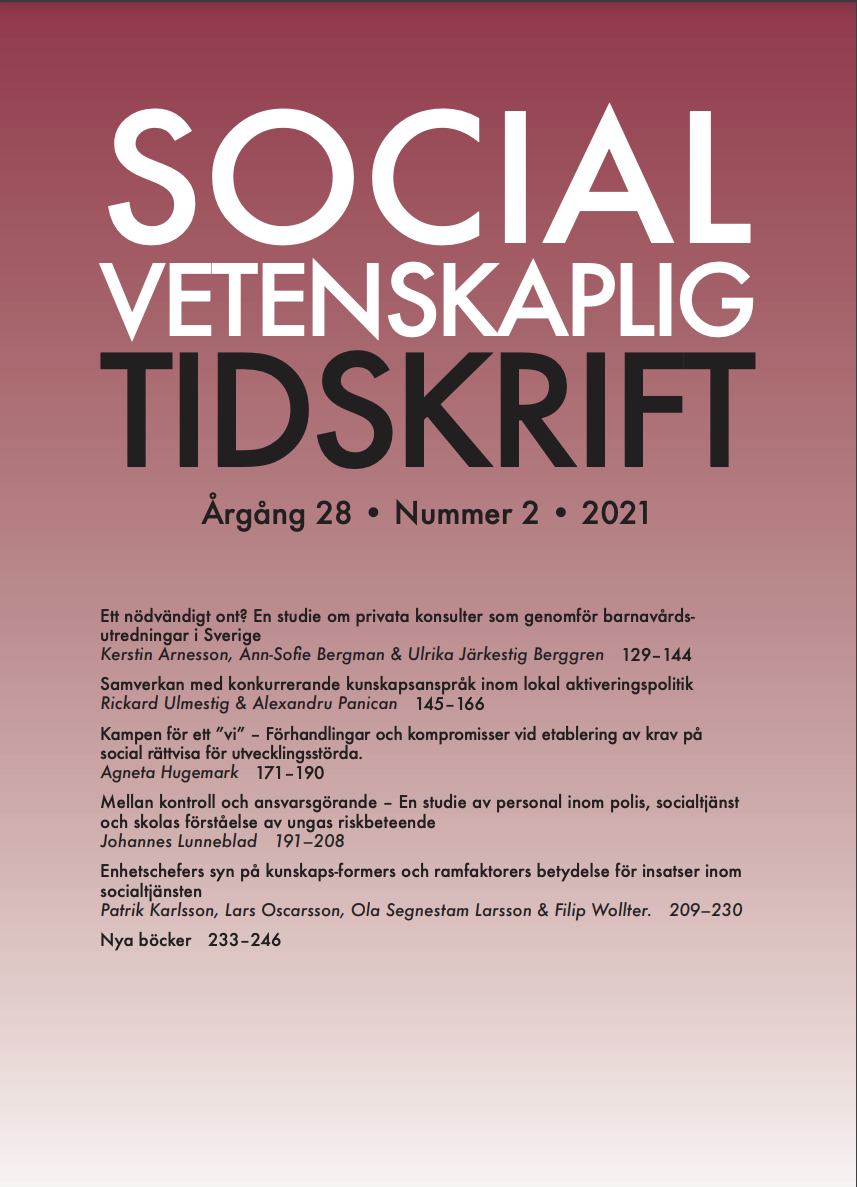Social control and responsibilization
A study of professionals’ understanding of youth at risk
DOI:
https://doi.org/10.3384/SVT.2021.28.2.4255Abstract
In recent decades, Swedish society has been characterized by increased material wealth for most residents. At the same time, not everyone has been given the opportunity to take part in this development. The gaps between prosperity and poverty have increased over the last three decades. This has resulted in large groups of youth being forced to live a strictly limited life in segregation and poverty. Youth living under these circumstances are often viewed as being at risk. The purpose of the present study is to investigate how different professional groups – police officers, social workers and school health teams – describe various measures taken to handle youth at risk. The result shows a tendency to individualize and place the problem within the young people themselves, and reporting to the police becomes a form of repressive social prevention with the aim of discouraging young people from risky behaviour.
Downloads
Published
Versions
- 2022-07-11 (3)
- 2022-07-11 (2)
- 2022-03-08 (1)
How to Cite
Issue
Section
License
Copyright (c) 2022 Socialvetenskaplig tidskrift

This work is licensed under a Creative Commons Attribution 4.0 International License.
Allt material i Socialvetenskaplig tidskrift publiceras sedan 2022 (Vol 28 Nr 2) med omedelbar öppen tillgång (open access), under Creative Commons-licensen CC BY 4.0. Upphovsrätten till innehållet tillhör respektive författare.
Allt innehåll i tidskriften är fritt tillgängligt utan kostnad och får fritt läsas, laddas ned, kopieras, delas, skrivas ut och länkas. När innehållet används måste författare, källa och licens anges. Författaren kan fritt göra sin publicerade text tillgänglig på institutionella och internetbaserade arkiv, exempelvis sitt lärosätes digitala arkiv eller andra tjänster för detta.
Inga publiceringsavgifter tas ut vid publicering i Socialvetenskaplig tidskrift.


